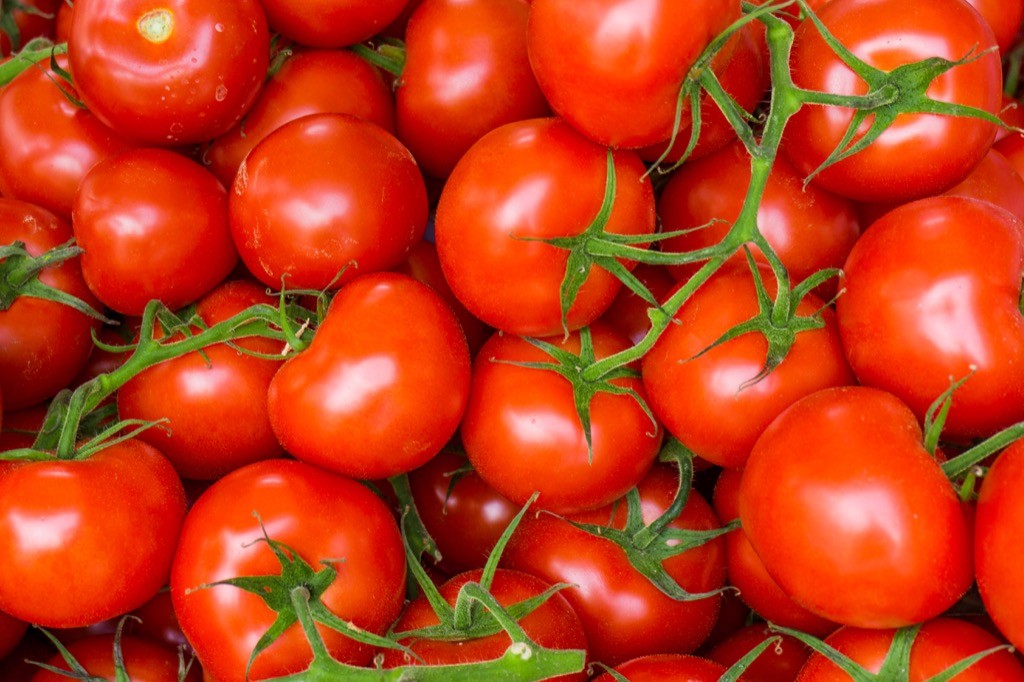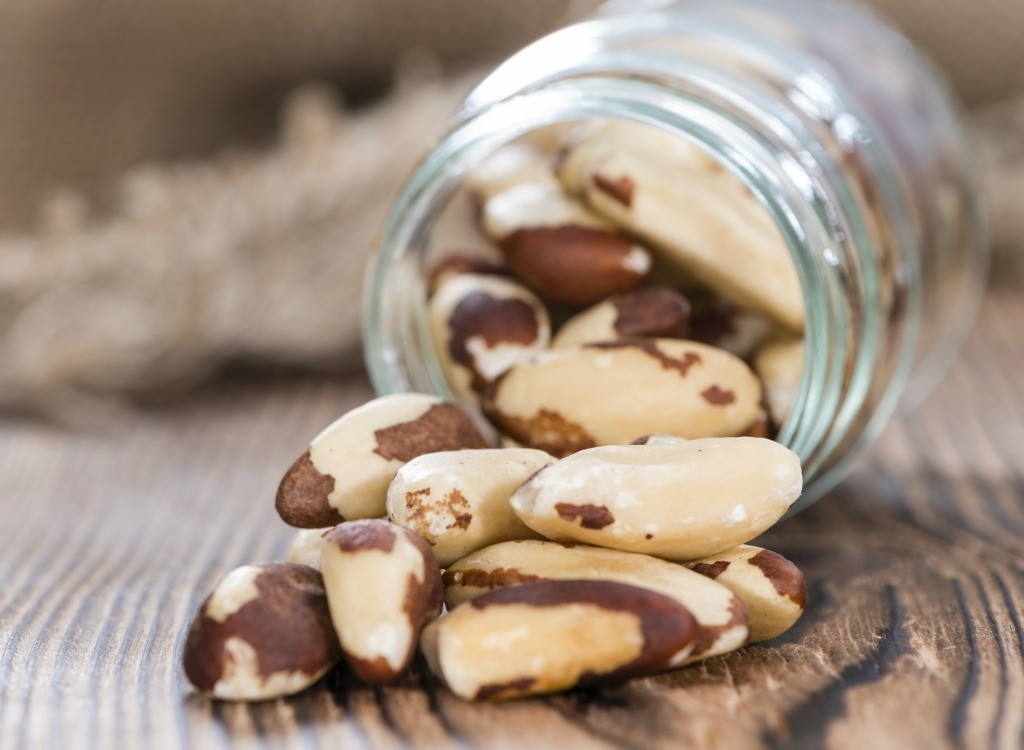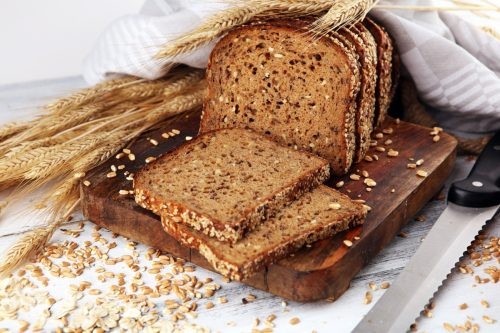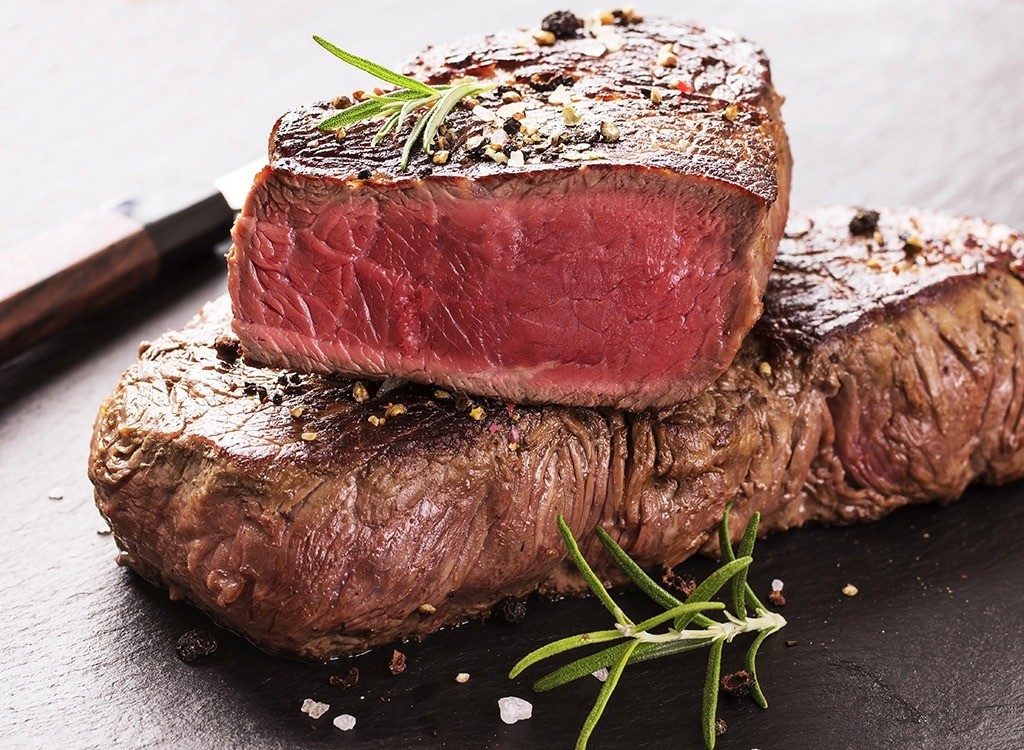Doctors Share the #1 Diet to Reduce Prostate Cancer Risk
Part of the eating plan includes limiting your intake of red meat and dairy.

After former President Joe Biden’s recent prostate cancer diagnosis, the disease is at the forefront of many people’s minds—and for good reason. According to the American Cancer Society, about 1 in 44 men will die of prostate cancer, making it the second-leading cause of cancer death in American men behind lung cancer. And though 60 percent of prostate cancer cases are diagnosed in men 65 and older, even younger men can take steps to reduce their risk. One of the simplest ways to do this is through what you eat.
“Whether someone is concerned about reducing their risk of prostate cancer or improving their survival after a diagnosis, we recommend a combined healthy diet, weight management and physical activity as the most effective evidence-based approach,” Nigel Brockton, PhD, vice president of research at the American Institute for Cancer Research (AICR), told Fortune.
Ahead, learn from him and other doctors about the best diet to follow to lessen your chances of getting prostate cancer.
RELATED: Doctors Say These Are the 7 Silent Signs of Prostate Cancer Most People Ignore.
Following the Mediterranean diet may help reduce prostate cancer risk.
In an article for Brown University Health, Sari Khaleel, MD, a urologic oncology surgeon, wrote that he recommends the basic principles of the Mediterranean diet for prostate health.
Generally speaking, this way of eating focuses on healthy foods like fish, nuts and seeds, legumes, fruits, vegetables, extra virgin olive oil, and whole grains, while limiting processed foods. “These come as nature made them, without extra added sugar, processed seed oils, chemicals, and additives,” registered dietitian Kimberly Gomer, MS, RD, LD/N, previously explained to Best Life.
According to experts, four main components of the Mediterranean diet may help reduce one’s risk of prostate cancer:
1
Omega-3s

Omega-3 fatty acids are healthy fats that help your body’s cells function properly.
“They’re a vital part of your cell membranes, helping to provide structure and supporting interactions between cells,” explains Cleveland Clinic. “While they’re important to all your cells, omega-3s are concentrated in high levels in cells in your eyes and brain.” Omega-3s also provide your body with energy and support your cardiovascular and endocrine systems.
Khaleel explains that the omega-3s found in foods like walnuts, flaxseeds, salmon, and sardines have anti-inflammatory properties, which “can help reduce inflammation in the prostate gland.”
In fact, a 2024 study published in the Journal of Clinical Oncology found that a diet low in omega-6s (found in plant oils, tofu, and some nuts and seeds) and high in omega-3 fatty acids, combined with fish oil supplements, “significantly reduced the growth rate of prostate cancer cells in men with early-stage disease,” according to a press release.
However, a separate study suggests that a higher level of omega-3s was associated with a slightly elevated risk of prostate cancer. Therefore, it’s always best to speak to your doctor before making any dietary changes.
2
Lycopene

Next, Khaleel points to research that suggests “a diet high in lycopene may be associated with a lower risk of developing prostate cancer.”
To his point, a 2022 meta-analysis published in the journal Nutrients concluded that lycopene exhibits anti-cancer properties by regulating oxidative stress and inflammation, inducing apoptosis (the process by which your body rids itself of unnecessary cells, including cancer cells), and stopping cancer cells from multiplying.
Lycopene is a powerful antioxidant that gives fruits their red color. It’s found abundantly in tomatoes, as well as grapefruit and watermelon.
As Best Life previously reported, a 2021 umbrella review of tomatoes and lycopene found that: “Tomato intake was inversely associated with all-cause mortality, coronary heart disease mortality, cerebrovascular disease mortality, prostate cancer, and gastric cancer. Dietary lycopene intake or serum lycopene was inversely associated with all-cause mortality, prostate cancer, stroke, cardiovascular disease, metabolic syndrome, and male infertility.”
RELATED: Doctors Say Too Many Men Are Making This Fatal Prostate Cancer Mistake.
3
Selenium and Zinc

“These minerals play a pivotal role in prostate health,” says Khaleel of selenium and zinc, adding that you’ll find these nutrients in Brazil nuts, seafood, chicken and turkey, and pumpkin seeds.
A 2024 systematic review published in the Journal on Oncology concluded that “Zinc and selenium are two antioxidant micronutrients that have been proven to exhibit antitumoral effects by inhibiting malignant cell growth. Adequate serum levels of these two correlated with a slower progression of the cancer and a better status of the patient, resulting in better survival rates and better success rates of the therapeutic interventions.”
4
Fiber

The Mediterranean diet promotes whole grains such as quinoa, brown rice, and whole wheat bread. These foods are naturally high in fiber, as are other Mediterranean diet foods, including chia seeds, avocados, berries, leafy greens, nuts, beans, and legumes.
Brockton tells Fortune that by promoting gut health, fiber also strengthens your immune system, which can help prevent cancer.
“One study also found that eating high-fiber whole grains was able to lower risk of aggressive prostate cancer via the production of the sex-hormone binding globulin, which helps regulate androgen levels that influence prostate cancer growth,” Fortune explains.
RELATED: Colon Cancer Risk Drops With This 1 Simple Snack, Groundbreaking New Study Finds.
Limiting your intake of dairy and meat may also reduce prostate cancer risk.

Of course, it’s not just about what you eat. What you avoid can also help with prostate health. Martha Silva, RD, LDN, an oncology dietitian at Mass General Brigham, shared with Fortune that dairy and meat may be most problematic when it comes to prostate cancer risk.
For example, a 2022 systematic review that included 25 studies and 1.9 million men concluded that having a higher overall intake of meat, as well as a high intake of processed meat, “might be associated with a higher risk of prostate cancer.”
Mayo Clinic notes that some studies have shown a correlation between red meat consumption and higher risk of an enlarged prostate.
Dairy could increase risk due to its high calcium content, which “has been associated with an increased risk of advanced-stage and high-grade prostate cancer,” according to a 24-year study of 47,885 men.
As previously mentioned, everyone’s dietary needs are different, so it’s always important to speak with your healthcare provider about what you should and shouldn’t be eating.





















